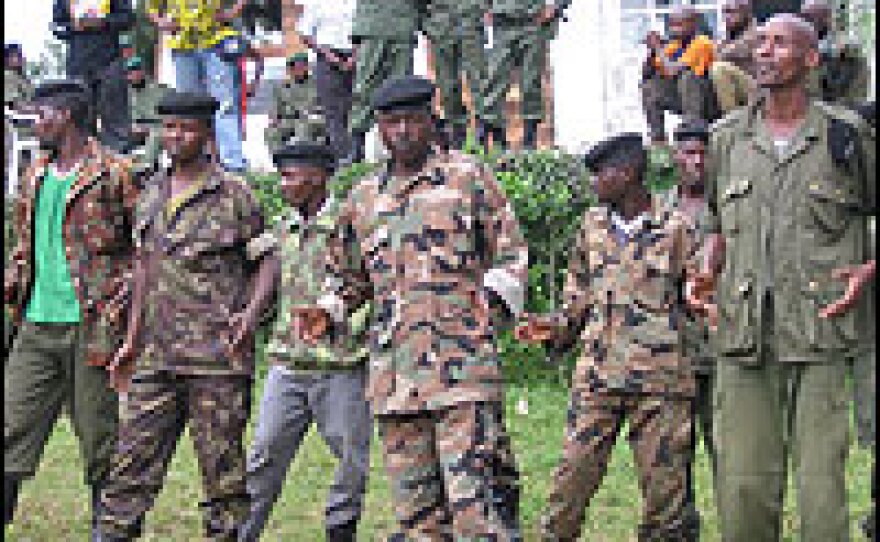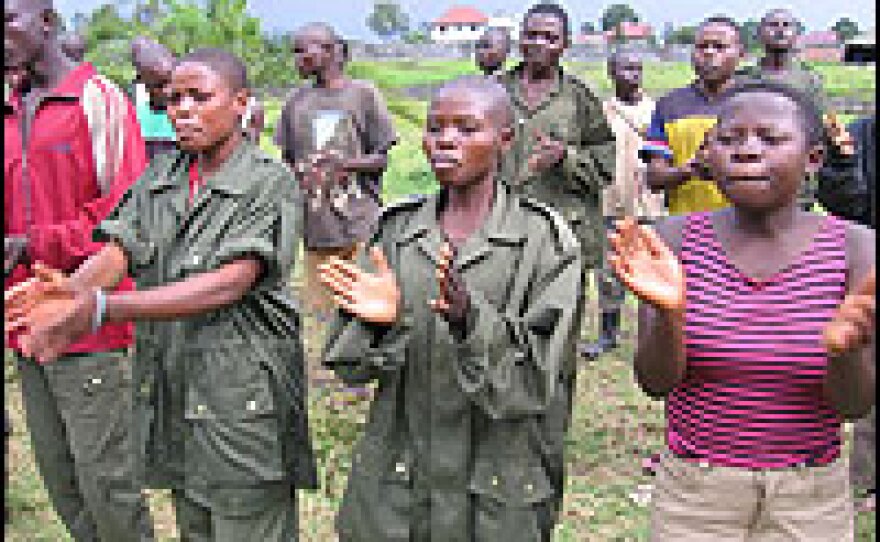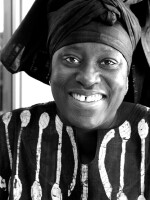

Ethnic tensions, renegade soldiers, army troops and local and foreign militias have created a deadly brew in eastern Congo.
The results include horrific attacks on civilians, sexual violence, massacres and the forced enlisting of child soldiers.
Congo is home to the largest U.N. peacekeeping force in the world, but it has been unable to stop the conflict. The Congolese government has been trying to disarm the rival combatants since 2004, but with limited success.
A Shaky Peace
In Kituku transit camp in North Kivu Province, a motley collection of nearly 300 ex-combatants sings motivational songs about the benefits of disarmament and peace. Dressed in an assortment of faded military fatigues, these former fighters have turned in their weapons in response to the government's offer of demobilization or integration into the army.
Some have been fighting for more than 10 years, since the fall of former Dictator Mobutu Sese Seko. Since then, one conflict after another has swept this giant nation, at one time drawing in six neighboring armies as well as tens of thousands of local combatants.
Those back-to-back wars ended in a peace deal in 2003 after an estimated 4 million people died of disease, deprivation and bloodshed. Fighters were supposed to be disarmed, but a recent upsurge in violence in the eastern Congo has many fearing a renewed war.
Renewed Violence
The latest violence pits forces loyal to a dissident Congolese Tutsi general, Laurent Nkunda, against Congolese government troops under President Joseph Kabila.
Kabila's Defense Minister Chikez Diemu has issued a warning to Nkunda and all other armed factions, saying, "You're either with us or against us."
"We simply said, 'You guys, come and join the regular army,'" Diemu says. "But if ever they don't want [to], what do you think any serious country, [any] responsible country will do? We will impose peace."
A Web of Military Alliances
But there's another element. The Congolese army sometimes allies with a Hutu militia, which has links to the genocide of, mainly, Rwanda's Tutsis living across the border from eastern Congo.
Nkunda — who is believed to be backed by Rwanda's Tutsi-led government — says he won't rejoin Congolese government forces until Kabila's soldiers disarm their Hutu proxy militiamen. Nkunda says that these militiamen are persecuting his Congolese Tutsi community.
The Hutu rebels sometimes have fought alongside Kabila's troops, but earlier this month, his government signed a deal with Rwanda pledging to disband them — a move rejected by the Hutus, most of whom make up the Forces for the Liberation of Rwanda.
Hundreds of thousands of civilians have fled the latest wave of fighting in eastern Congo. Human Rights groups say the displaced suffer from killings, rapes and pillaging — atrocities perpetrated by all the armed factions, including the national army.
Stepping Down from the Rebel Militia
At a leafy, lakeside transit camp, ex-combatants — mostly men, but also a few women and children — receive military orders and discipline.
They wait to join the army or return to society with the promise of training and education. They also enjoy regular meals and facilities after months — and sometimes years — in the bush. They've all arrived since the government's ultimatum last month, demanding fighters to hand in their weapons or face the consequences.
Some of Nkunda's men are turning themselves in.
"They said the Congolese government was going to kill all Tutsis," says Theoneste Bugarade, explaining why he joined the rebel forces. "That's why we joined up so that we could protect our tribe. But later we learned that that was all lies. They tricked us. It wasn't true. That's why we left. We'd been in the forest forever. So when we heard the president's call to surrender, we escaped."
Congolese coordinators say that about 150,000 former fighters have handed in their weapons since the beginning of disarmament in 2004. More than 100,000 opted to become civilians again.
Copyright 2022 NPR. To see more, visit https://www.npr.org. 9(MDAzMjM2NDYzMDEyMzc1Njk5NjAxNzY3OQ001))







